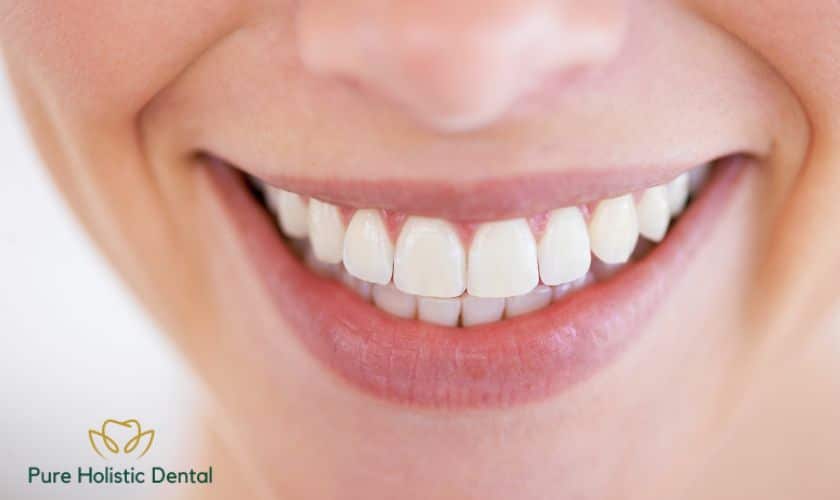If you have an autoimmune disease, you may wonder how it will affect your dental health. Unfortunately, there is no easy answer, as the effects can vary depending on the individual oral health condition. However, there are a few points to think about. For example, people with autoimmune diseases are more susceptible to infections, so good oral hygiene is even more important. Medications that treat them can also cause dry mouth, leading to increased cavities and other problems.
What Are Autoimmune Diseases, And How Can They Affect Your Dental Health?
Autoimmune diseases are conditions in which your body’s immune system mistakenly attacks healthy tissue. This can result in a wide range of symptoms, from minor to potentially fatal. They can often affect the blood vessels and nerves in the body, which include those in the mouth.
There are more than 80 different types of autoimmune diseases that can affect any part of your body. Some autoimmune diseases, such as rheumatoid arthritis, lupus, and celiac disease, are well known. Some relatively well-known autoimmune diseases include rheumatoid arthritis and Crohn’s disease. Sjögren’s syndrome and vasculitis are less well-known but can be just as debilitating. Others, such as autoimmune hepatitis and Graves’ disease, are less common.
Autoimmune diseases can affect your dental health in several ways. For example:
-
People with autoimmune hepatitis are at risk for developing gingivitis, which causes inflammation and bleeding of the gums.
-
Those with Grave’s disease may experience changes in the appearance of their teeth, such as increased sensitivity or yellowing.
-
Patients with lupus may have a higher risk of developing periodontal disease, a severe infection of the gums that can lead to tooth loss.
-
Scleroderma causes a lack of saliva, increasing the risk of cavities and tooth decay. It also causes dry mouth, which leads to bad breath.
If you have an autoimmune disease, it’s crucial to see your dentist regularly so that any problems with your dental health can be detected and treated early.
The Most Common Symptoms Of Autoimmune Diseases That Affects Your Teeth
While there are many different types of autoimmune diseases, some of the most common include rheumatoid arthritis, lupus, and Crohn’s disease. While these diseases can impact any body part, they can also significantly impact oral health.
Here are the dental issues that autoimmune disease can cause to your teeth, gums, and jaws:
-
Gingivitis and Periodontitis
Gum inflammation is linked with several diseases like lupus, Crohn’s disease, and scleroderma. Gingivitis is a dental condition where the gums become inflamed and red. It can also lead to periodontitis. Patients can experience tenderness and bleeding from the gums. Their teeth shift or feel loose, which can eventually fall out.
-
Dry Mouth
A dry mouth can be caused by the medications that you take. Sjögren’s syndrome attacks the salivary glands, causing a decrease in saliva. It causes dryness of tissues, which makes it difficult to swallow, eat, speak and taste. Dry mouth also increases the risk of cavities as saliva dilutes and washes away bacteria and food debris.
-
Temporomandibular Joint Pain (TMJ)
Most autoimmune diseases attack the bone joints. TMJ acts as a pivot that allows the jaw to open and close. When this joint is damaged, it can cause headaches, stomach pain, and popping and clicking noises. It is usually detected through advanced dental technology that uses X-rays to detect such problems.
In addition, autoimmune diseases can make it more difficult for the body to fight off infection, increasing the risk of cavities and other oral health problems.

How To Take Care Of Your Teeth If You Have An Autoimmune Disease?
Autoimmune disease can wreak havoc on your body, but it doesn’t have to ruin your smile. You can take steps to protect your teeth and gums, even if you have a flare-up.
-
First, it’s essential to practice good oral hygiene. This means brushing your teeth twice daily, flossing daily, and using mouthwash. You should also see your dentist regularly for dental cleanings and checkups. If you have an autoimmune disease, you may be at higher risk for gum disease, so it’s imperative to keep up with your oral health routine.
-
Try to eat a healthy diet and avoid sugary drinks. When you eat sugary foods, brush your teeth right away or rinse your mouth with water.
-
If you smoke, quit. Smoking can make autoimmune diseases worse and increase your risk for dental problems.
These simple steps can help keep your teeth and gums healthy – even if you have such health problems.
Dental Treatments For People With Autoimmune Diseases
People with autoimmune diseases often have difficulty finding dentists familiar with their condition and its potential effects on dental health. As a result, they may delay or avoid seeking dental care altogether. However, dental treatment is an essential part of overall health for all.
Many dental treatments are safe for people with autoimmune diseases, and many dentists are now familiar with the special considerations that these patients require. By seeking dental care from a qualified provider, people with autoimmune diseases can maintain good oral health despite their condition.
Tips For Preventing Dental Problems If You Have An Autoimmune Disease
If you have an autoimmune disease, you may be at increased risk for developing dental problems. Here are some suggestions for maintaining healthy teeth and gums:
-
Visit your dentist regularly or twice a year for checkups and dental cleanings.
-
Brush your teeth twice a day with a good toothpaste.
-
Floss daily.
-
Clean your tongue.
-
Use mouthwash.
-
Avoid sugary and acidic foods and drinks.
-
Quit smoking.
These simple tips can help prevent dental problems and keep your smile great!
The Bottom Line
Autoimmune diseases can cause various problems for your dental health, but there are steps you can take to protect your teeth. Be sure to visit your dentist regularly and follow their instructions for taking care of your teeth. If you have an autoimmune disease, special considerations need to be made for dental treatments. Consult your dentist to learn more about your options. You can keep your smile healthy despite having an autoimmune disease with proper care.
FAQs
What are some of the symptoms of an autoimmune disease?
Autoimmune diseases can cause a wide range of symptoms, depending on the individual and their specific autoimmune disorder. Common symptoms include:
-
Fatigue
-
Joint Pain And Stiffness
-
Muscle Pain
-
Skin Rash Or Lesions
-
Headaches
-
Fever
-
Swollen Lymph Nodes
-
Unexplained Weight Loss
Other symptoms may include abdominal pain, hair loss, itchiness, and sores in the mouth or nose. Many autoimmune diseases can cause a general feeling of being unwell, with symptoms that come and go or flare up with no apparent cause.
How do autoimmune diseases affect other parts of the body?
Autoimmune diseases can affect any part of the body but most commonly affect the skin, joints, thyroid gland, and digestive system. Autoimmune diseases are often chronic and difficult to manage. There is no cure for autoimmune diseases, but treatments are available to help reduce symptoms and prevent further damage to the body.
How is an autoimmune disease diagnosed?
Diagnosing an autoimmune disease can be challenging, as the symptoms may mimic those of other conditions. Furthermore, no single test can definitively diagnose an autoimmune disease. Instead, doctors typically rely on a combination of medical history, physical examination, and laboratory tests to make a diagnosis.
What are the risk factors for developing an autoimmune disease?
There are a number of risk factors have been identified with autoimmune diseases. These include genetics, age, gender, and certain viral infections. Autoimmune diseases are more common in women than men and often run in families. In addition, autoimmune disease rates tend to be higher in developed countries than in developing countries.
Can autoimmune diseases be cured?
There is currently no cure for autoimmune diseases, but treatment options are available that can help lessen symptoms and improve quality of life. While there is no cure for autoimmune diseases, researchers are working to develop better treatments and eventually find a cure. In the meantime, people with autoimmune diseases can live full, active lives with the proper medical care and support.



